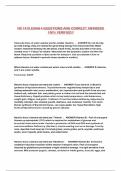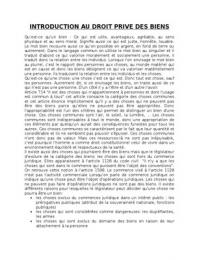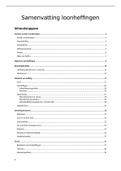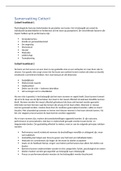*Friedrich Max Müller 1870 introduced 'Science of Religion'
A.Ancient theories:
Herodotus: Apollo & Zeus = Horus & Amon
Euphemerus: gods are outstanding personages from history
B.Judaism & Christianity:
Judaism seen as the only right religion, Chr. came for this & coppied the attitude .( despite some
travellers around 1500, The white Brahmin)
Martin Luther vs John calvin didn't agree to church's interpretation of biblical thruth.
C.Enlightenment & Natural religion:
18th C: enlightenment, intellectici came up with ' natural religion ( Deism)
*Deism: creator god with set of moral laws and promise of punitive/rewarding afterlife. ( left world to its
own natural laws)
-->Opened the door to new way of explaining many forms of religion (everything could be traced back to
Deism)
--> natural i.s.o. supernatural, it could be explained rationally
D.Modern theories:
Deism's agenda: to praise natural religion was to blame revealed religion
--> religion of the head, not of the heart ( romanticism)
E.Definition of terms:
*religion: (Durkheim & Eliade) believing in the sacred
*substantive definitions: define religion in terms of believes/indeas religious pple commit to.
*functional definition:define it solely in terms of how it operates in human life.rrrrrrrrrrr
,8ToR: Chapter 2 Animism & Magic, Tylor and Frazer :
A.Edward Burnett Tylor::
Some consider him creator of anthropology. ( & ethnography & - logy)
Background: English Quakers( extreme protestants), got ill and travelled and got interested in foreign
cultures.
Works: Primitive Cultures (1871)
Primitive Cultures:
1. Background: like “Origin of Species” very unsettling & questioning Christian foundations
Müller: Key to religion (culture) = language. Nomina became Numina (b.o. gender & use of verbs)
Tylor incorporated some Müller ideas yet strongly felt that Ethnology was better than
Etymology (study culture in all its component parts)
2. Aims & Assumptions: 2 great laws of culture when anthropology is done correctly:
I. Psychic unity within human race (same customs were invented independently)
II. Pattern of intellectual evolution/improvement ( when variations in psychic unity occur)
3. Doctrine of ‘Survivals’: Some practices linger on despite being backward ( cultural leftovers in
stream of social evolution) b.o. uniformity we can understand/explain this
4. Aspects of human culture: connection btw basic rational thinking and social evolution is
apparent in all aspects of a culture. Magic is based upon association of ideas ( explaining and
influencing the natural world)
Finds same pattern of rationality in most basic &significant human accomplishments: math &
language
5. Origin of religion: Myths mark the path of inquiry that must also be followed in searching for
origin of religion.
*Religion:Belief in religious spirits
*Animism = essence of religion & myths
How & why did humans believe in animism? Through same reasoning mechanisms they
employed in other aspects of their lives. Souls animate persons, spirits the (super)natural world.
(Across all cultures, gods have human personalities because they’re modeled after human souls)
, 6. Growth of religious thought: spirit of tree became god of the woods, Godhierarchy and
ultimately one supreme divinity.
7. Decline of animism and progress of thought: course of reason once led pple to animism, in
modern era it must lead ppl away from it. Animism was a natural parallel to science, but is now a
‘survival’. Animism belongs to the childhood of humanity.
B.Frazer:
Background: Scotch Calvinistic parents, got fascinated with anthropology after reading Primitive Cultures.
Started writing with Smith about it. Understanding classic world ( romans,Greeks) through anthropology
& Tylor’s doctrine of survivals.
Works: Golden Bough (1890-1915)
Golden Bough:
1. Background: First 2 volumes, by the end 12 volumes ( 1922 abridged single volume) Golden
Bough= tree near Via Appia Diana temple. Understanding magic & religion( & their connection) is
to enter the primitive mind
2. Magic and Religion: Struggle to survive thus use of magic
*sympathetic magic: mental connections mirror physical ones.
Scientific systematic: Imitative ‘like affects like’ (Rain-king India) & Contagious ‘part affects part’
(voodoo) Magician as chief
System, not the man is mistaken = momentous development in history of human thought.
Magic declines, religion takes its place.
Religion rejects magical principles, embraces divine personalities
Religion is more advanced b.o. uncertainty of gods will.
3. Magic,religion and the divinity of Kings: with coming of religion, priest/divine kings also came
( during transitions, primitives used both systems; magic on gods)
4. Gods of vegetation: seasonal cults of vegetation = thé place of convergeon of magic & religion
5. Tree spirits, fire festivals and myth of Balder: reveal that Balder & Woodking are the same slain
divine king
6. Conclusion: Science= the new magic, but without flaws










